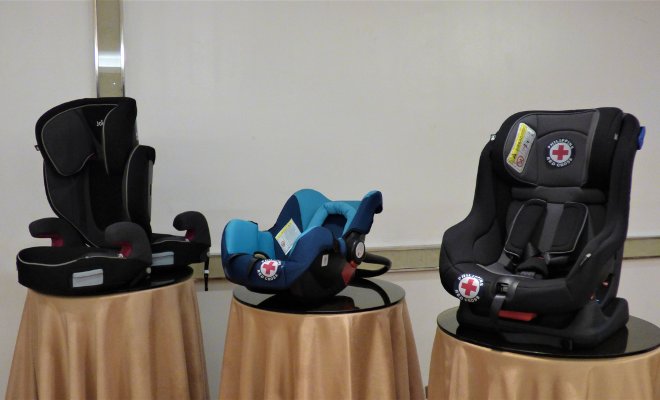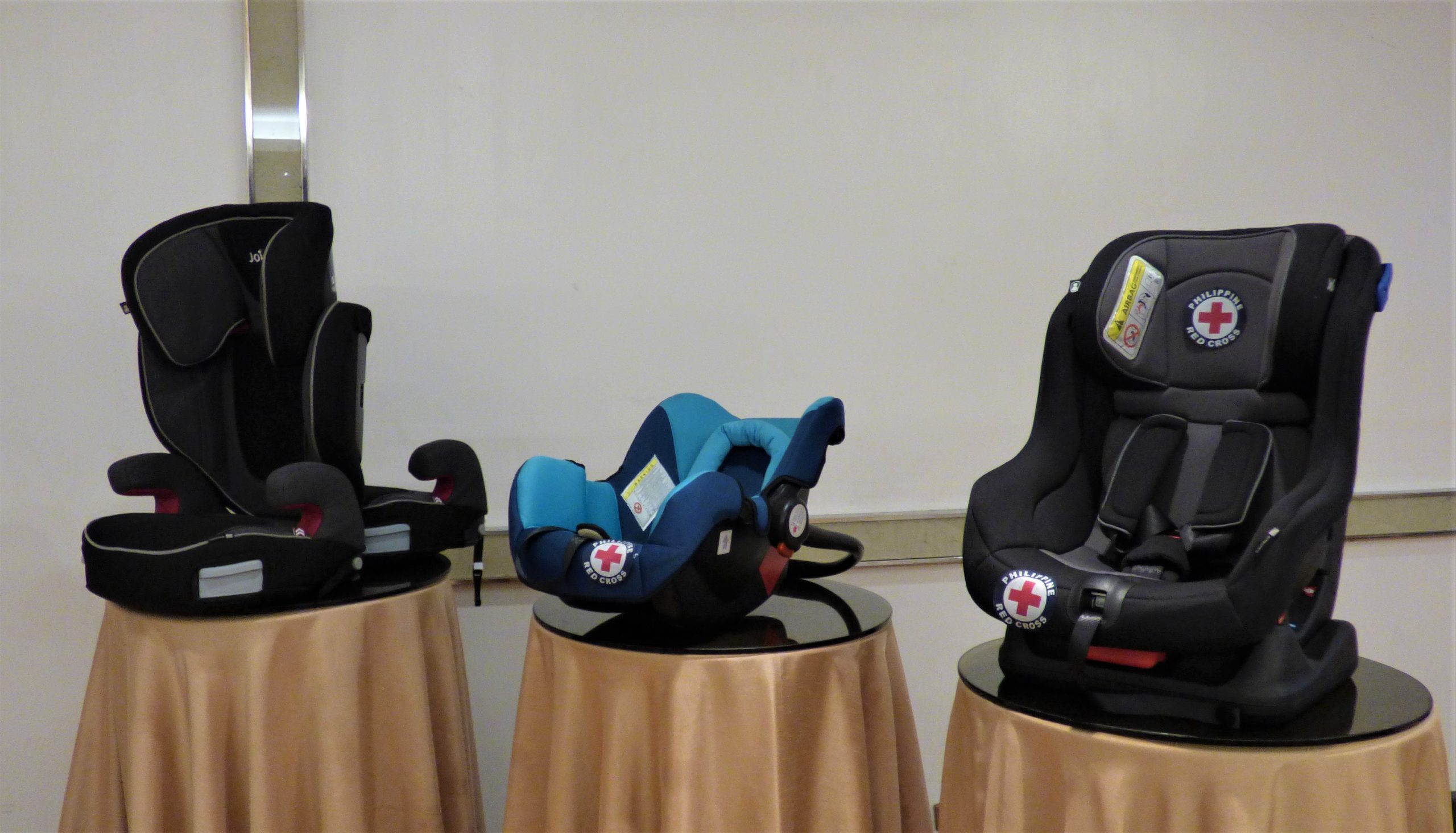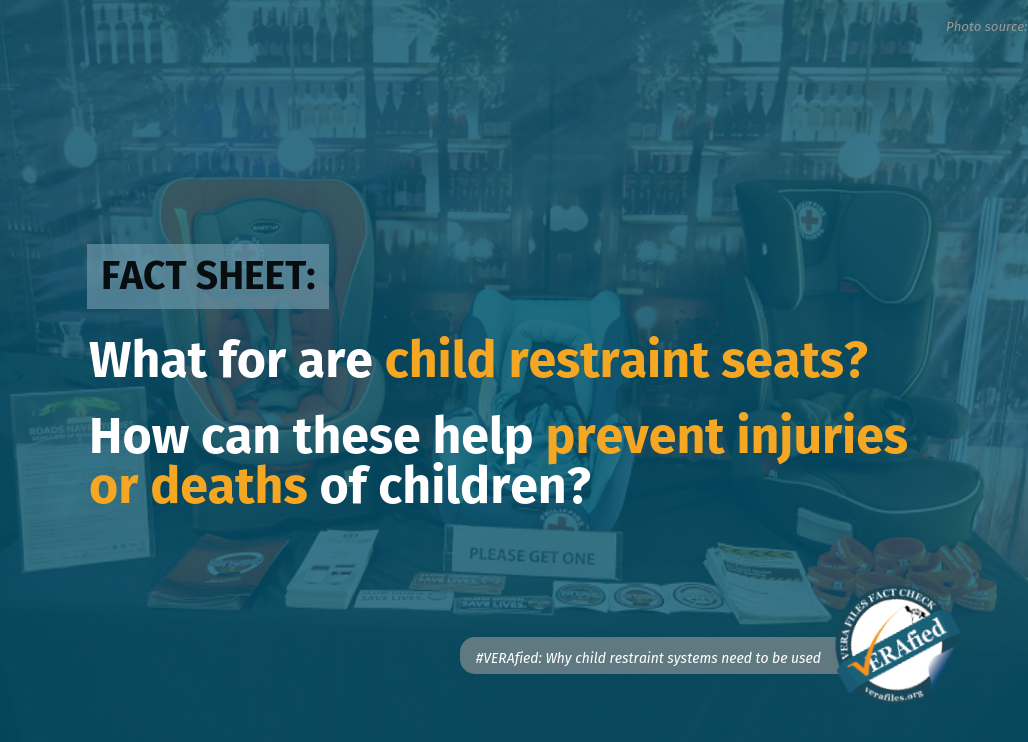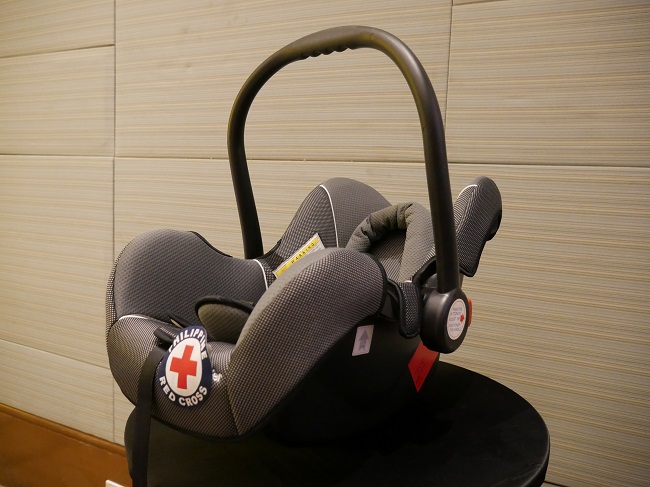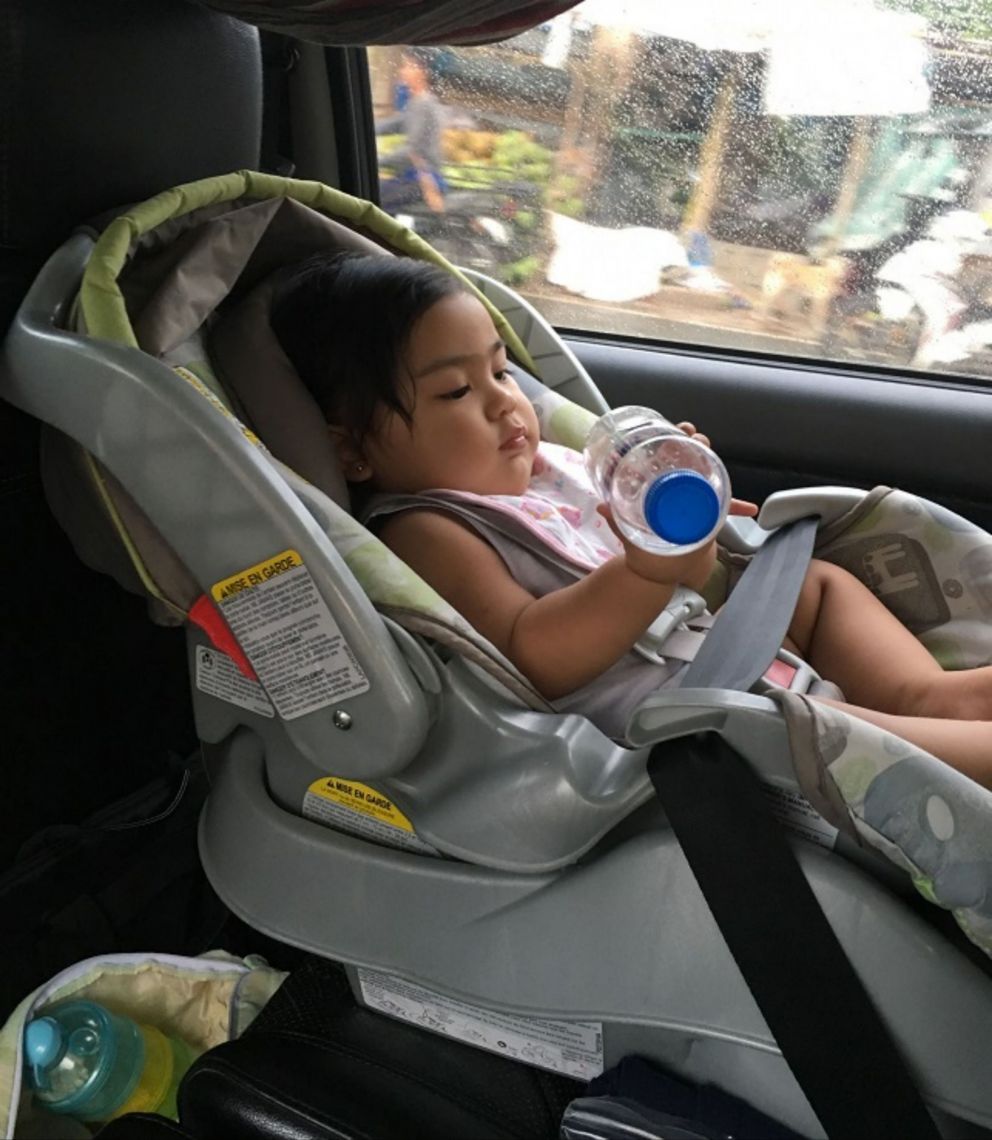The deferment of the implementation of the “Child Safety in Motor Vehicles Act” does not mean that the two-year-old law is taking a back seat.
Republic Act (RA) 1129, which requires children up to age 12 and shorter than 4’11” to be strapped to car seats, was supposed to take effect on Feb. 2. However, the Department of Transportation (DoTr) and the Land Transportation Office (LTO) agreed to postpone its enforcement, following a Senate resolution, filed by six senators, to give the agencies more time to issue and disseminate implementing guidelines.
Critics of the law have raised not only the lack of preparation for the full implementation of the law, but also the additional financial strain it may cause during the coronavirus disease 2019 (COVID-19) pandemic.
Others have raised concerns that some provisions of the law may be abused to become yet another source of corruption for unscrupulous enforcers, given the notoriety of both the DoTr and LTO as among the most corrupt government agencies.
The Volunteers Against Crime and Corruption (VACC), for one, flagged possible corruption in accrediting private fitting stations which, it claimed, did not go through public consultation.
Rep. Ruffy Biazon of Muntinlupa City called for a review during the deferment period provisions in the implementing guidelines that “go beyond the scope and authority of RA 11229 and also add to the confusion and apprehension about the law.”
According to Sen. Christopher Lawrence “Bong” Go, President Rodrigo Duterte was also not amenable to implementing RA 11229 at this time because of the added cost the specialized car seats for children would entail for Filipino families, who are still struggling to cope with the difficulties from the pandemic.
It is unclear how long the deferment will be. What we heard from LTO officials was that there won’t be apprehensions of violators for three to six months. Senate Resolution 633 seeks a deferment “until necessary guidelines are put in place and agency mandates are fulfilled.”
What is clear is that the LTO and the DoTr need to buckle down to fully prepare their agencies and the public for a smooth and effective implementation of RA 11229.
“There’s still no need to worry about being apprehended or fined. We won’t penalize or give sanctions to violators for now. We will only remind them about the law while we’re still developing public awareness on it,” said Assistant Secretary Edgar Galvante, the LTO chief.
RA 11229 was enacted on February 2019; yet, its implementing rules and regulations came out 10 months later. Because of the pandemic, it took a backseat as the LTO and DoTr became busy, dealing with the challenges in the transportation sector. Thus, the two lead implementing agencies were caught unprepared in enforcing the law as scheduled.
The agencies have yet to come out with guidelines in accrediting fitting stations and determining the fitness of child car seats as well as train enforcers in implementing the law. Not much information on the provisions has been released, presumably to give private-car owners enough time to buy and install child car seats if they have children to transport.
Also because of the pandemic, the deferment would not have much impact anyway, considering that most parts of the country are still under modified and general community quarantine in which children are prohibited from going out of their houses.
Much of the criticism of the law focuses on the high cost of the child car seats, particularly at this time when many Filipino families are having financial difficulties due to COVID-19.
The primary intent of the law ‒ to protect the child inside motor vehicles in the event of a road crash ‒ has been sidelined by issues of cost, timing, and corruption.
It should be emphasized that the use of child car seats is a global best practice in view of study findings that road crashes are the second leading cause of death among children.
According to the World Health Organization’s Global Status Report on Road Safety 2018, an estimated 1.35 million people die every year as a result of road crashes.
While installing a child car seat may really cause a dent in an ordinary Filipino family’s income, the protection it would provide is worth the investment. Hospital treatment, the lifetime burden of disability or even the death of a child, who figures in a road crash, would certainly be more costly. So, better be safe than sorry!
The deferment period ‒ be it three or six months, or indefinitely ‒ should give parents sufficient time to save for and install the appropriate car seat for their children. It’s already a law, and it will still be implemented in time.
Even if the law will later on be scrapped, securing a child passenger is an obligation. Yes, a child car seat may be an added financial strain on a family’s budget, but it is a necessary expense for your child’s safety.
As its advocates say, a child car seat will provide protection during transport that not even a mother’s embrace could ensure.
The views in this column are those of the author and do not necessarily reflect the views of VERA Files.
This column also appeared in The Manila Times.
